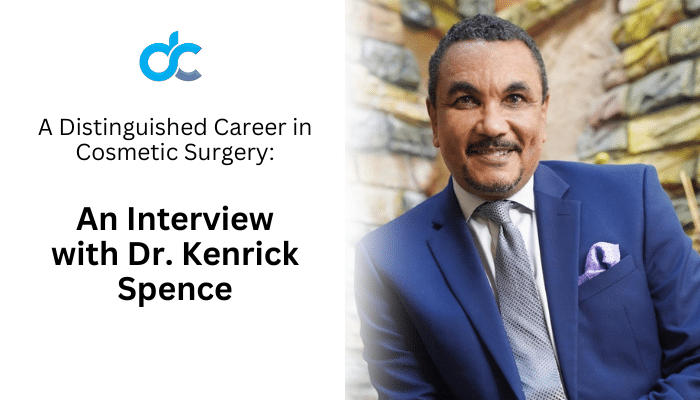Renowned among cosmetic plastic surgeons in Orlando, Dr. Kenrick Spence has been practicing medicine since 1990 and has built an exceptional reputation in plastic surgery since opening his private practice in 1999. As the founder of Hillcrest Plastic Surgery, Dr. Spence has been recognized as Orlando’s Best Plastic Surgeon for six consecutive years—a testament to his skill, artistry, and patient-centered approach.
In 2011, Dr. Spence refined his focus exclusively to facial plastic surgery and rejuvenation, further expanding the range of advanced surgical and non-surgical treatments available at Hillcrest Plastic Surgery. Today, his practice is known not only for natural-looking surgical outcomes but also for offering the latest in aesthetic technology and skin wellness.
Hillcrest Plastic Surgery joined the DermCare Management family in 2021, further expanding our footprint in aesthetic medicine and cosmetic surgery. As one of the most distinguished physicians within our network, Dr. Spence brings an unparalleled level of expertise and passion to his craft.
We had the privilege of sitting down with Dr. Spence to learn more about his philosophy of care, his approach to facial rejuvenation, and what continues to inspire his work. Read the full interview below.
What inspired you to pursue a career in medicine, and specifically in plastic surgery?
“Although I was born in London, my parents returned to Jamaica, where I attended high school. Early on, I showed some talent in art, but my path was ultimately guided toward the sciences—they were chosen for me, and I had little say in the matter. My decision to pursue medical school was heavily influenced by a mentor I conducted research with, and it was during that journey that I discovered plastic surgery as the perfect blend of art and science.
While it was initially frustrating to have my academic path decided for me, I later realized that plastic surgery is the only true fusion of science and art in medicine. It provides an incredible creative outlet while allowing me to make a tangible impact on patients’ lives every day.”
Can you share any pivotal experiences during your education that influenced your specialization?
“As a medical student, I was fascinated by many of the surgeries I observed. However, one pivotal experience stood out—while on the cardiac service, I witnessed the reconstruction of a massive chest wound. This procedure was not only intricate but also life-saving, as it allowed the patient to be taken off the ventilator and breathe on their own.
That moment opened my eyes to the incredible versatility of plastic surgery. It’s a field where, on one day, you can perform a procedure that saves a life, and on another, you can help someone feel more confident in their own skin. That balance between function and aesthetics is what ultimately drew me in.”
Having been in private practice since 1999, what significant changes have you observed in the field of plastic surgery?
“When asked this question, many physicians tend to focus on the negatives, but I believe the field of plastic surgery has seen incredible advancements over the years. One of the most exciting developments has been the introduction of skin substitutes, made possible through technology, which are now used in both aesthetic and reconstructive procedures—something we never had before.
Another game-changer has been the use of dermal fillers, allowing us to enhance beauty with just a vial taken off the shelf. But perhaps the most significant progress has been in surgical techniques. Whether in reconstructive or aesthetic surgery, we’ve refined our methods to achieve more natural-looking results that align with patient goals. Fat grafting, for example, has become a fundamental part of aesthetic surgery, just as it has in reconstructive procedures. These innovations continue to shape the field, offering patients better, safer, and more effective options than ever before.”
How do you balance the demands of your profession with personal life to maintain overall well-being?
“That’s definitely a challenge. When you love what you do, work can easily take over your personal life. But I’ve found that prioritizing meditation, taking quiet moments for myself, and staying present with family are essential. These practices help keep my mind, body, and soul balanced, allowing me to show up as my best self both in and out of the operating room.”
How do you approach building rapport with your patients to ensure they feel comfortable and informed throughout their treatment journey?
“I believe building a strong rapport with patients comes down to two key principles. First, from an early age, my parents taught me to treat others as I would want to be treated. I apply this mindset to my doctor-patient relationships by always considering how I would feel if I were in their position—vulnerable and seeking guidance. Approaching each interaction with empathy and respect helps foster trust.
Second, I make it a point to have patients repeat back what they’ve understood from our discussions. This ensures we’re on the same page and gives me a clear sense of what they’ve taken away, allowing me to clarify any misunderstandings. Ultimately, my goal is for every patient to feel heard, informed, and confident throughout their treatment journey.”

